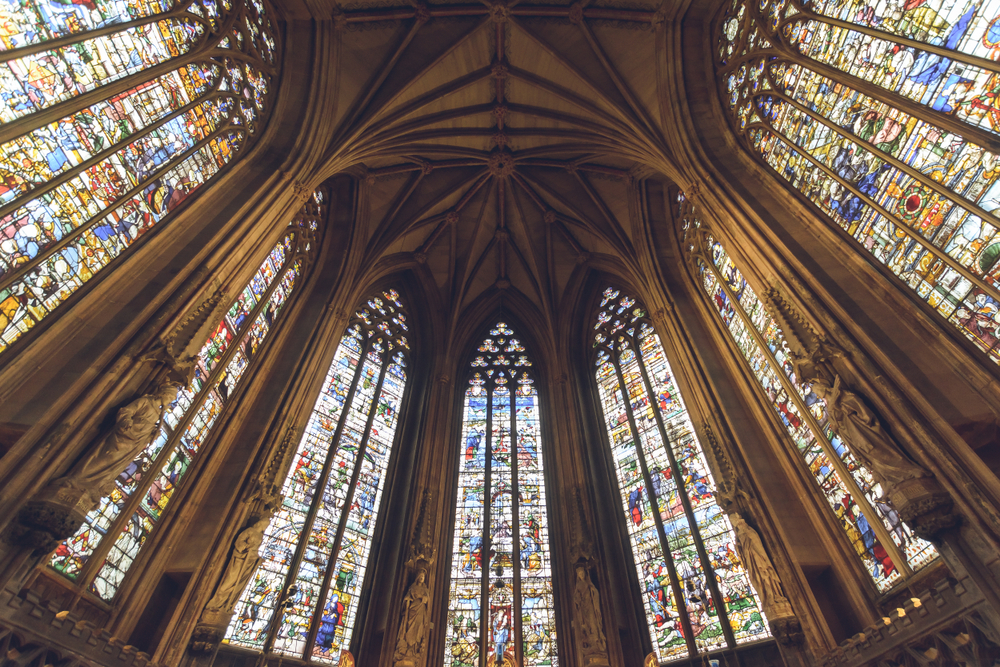The slow corruption of truth | thearticle
- Select a language for the TTS:
- UK English Female
- UK English Male
- US English Female
- US English Male
- Australian Female
- Australian Male
- Language selected: (auto detect) - EN

Play all audios:

There is an argument which is traceable at least to Plato which, in modern form, goes like this: does God will what is “good” or does what is “good” depend, in the end, on what God decides?
If the former, then what is “good” is independent of God; if the latter then morality seems to become like some sort of version of _The Sopranos_ in which it is the boss who decides what is
right and punishes what is not. To put it another way, according to Plato (and others), either God instructs us on what is “good” (in which case the “good” doesn’t need him, and the basis of
morality is not ultimately religious) or he just insists that what he decides is good is, ipso facto, good (which looks like the moral system of a capricious adolescent). The best way to
deal with this dilemma is to demonstrate that it requires a logical distinction between God and “goodness”, and that the distinction cannot survive a proper evaluation of what God, if he
exists, must be like. According to classical theism, God is absolutely simple and immutable. He is simple in that he cannot be composed of parts, because if he is composite then those parts
would exist ontologically prior to him; and he is immutable by virtue of his simplicity. Change is not possible in God because to change is to undergo some change in properties. But God does
not have properties, rather he is his properties. God does not have goodness, he simply is the good; he is not omnipotent in the sense of possessing the property “omnipotence”, he just is
his omnipotence. God does not “have” existence, he is Being itself. This is why the popular conception of God as a sort of celestial old man with a beard is misconceived. God is not, as
philosophers would put it, a particular instance of a kind. He is not an item in the world, composite and contingent, like an infinitely more powerful version of you or I. The “flying
spaghetti monster” argument is, in the end, facile precisely because of this misconception. “Voluntarism” — the idea that we can ultimately decide what is true, or good, or valuable is not
available to God. He cannot will the good to suddenly become evil, because to do so would be to go against his own nature, and this is logically impossible. But this does not impugn his
omnipotence since it is not a constraint to be unable to go against your own essential nature, any more than it is a constraint to be unable to draw a square circle. But if voluntarism is
unavailable for God, what makes anyone think it is available to us? The argument assumes, of course, that some version of classical theism is true, and that essential natures exist. This is
fair enough, all that has been shown is that the voluntarist zeitgeist, is inconsistent with one version of what God essentially is. But there is another way of putting this: that one of the
reasons we are so tolerant of the idea that people can choose what’s true or valuable is that the culture has become increasingly a Godless one. The last three hundred years, especially in
the West, have seen a corruption of the notion of truth. The rise of science generated an entirely unnecessary confusion: that God and science, or God and reason, must be in competition with
each other. When Nietzsche wrote that “God is dead” he was implying that when you sever the connection between truth and God then you are as a consequence going to demote truth in favour of
power. He approved of this, but he didn’t have to deal with the ghastly consequences: the post-modernist view, articulated most lucidly by Foucault, that all relationships are properly
understood not in terms of truth but of power. This is the idea that the intersectional movement dimly grasps: that you can say whatever you want because there is no truth just power, and
because there is no truth, there is no such thing as nonsense. You are what you say you are, and if you don’t buy this, then you are what we say you are: an oppressor. Which brings us to the
transgender movement which, being a movement, keeps on moving. From the (defensible) claim that people might hold a sincere belief that they are in the wrong biological body, it is now a
transgender orthodoxy that biology is irrelevant, and that people can self-declare their appropriate pronouns. But this is not something that any believer in the classical God can accept. If
we have natures then they are fixed by him, not by us. God doesn’t allow himself to go against his own nature, it is a form of disobedience for us to think that what he can’t do he has
allowed us to do for ourselves.